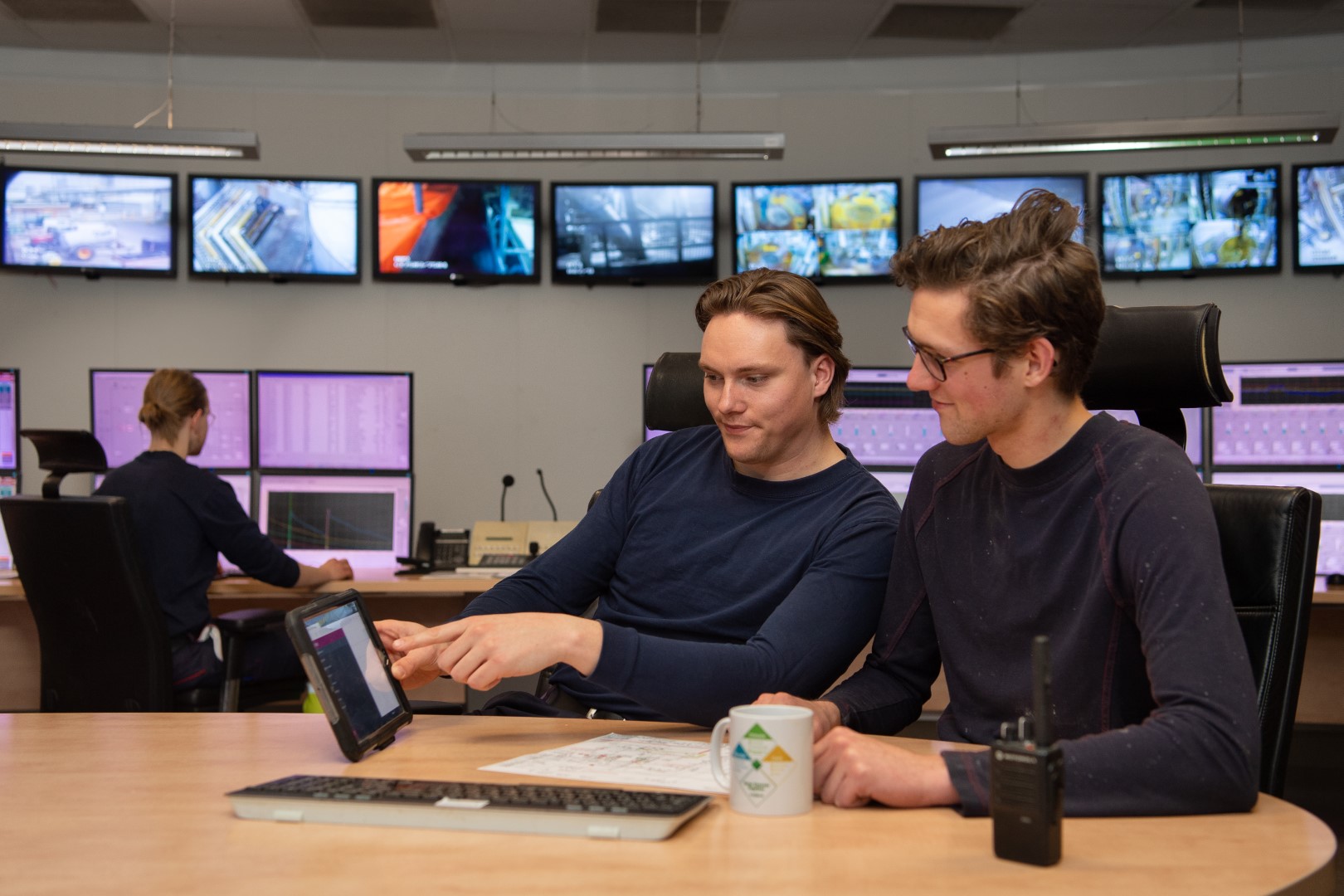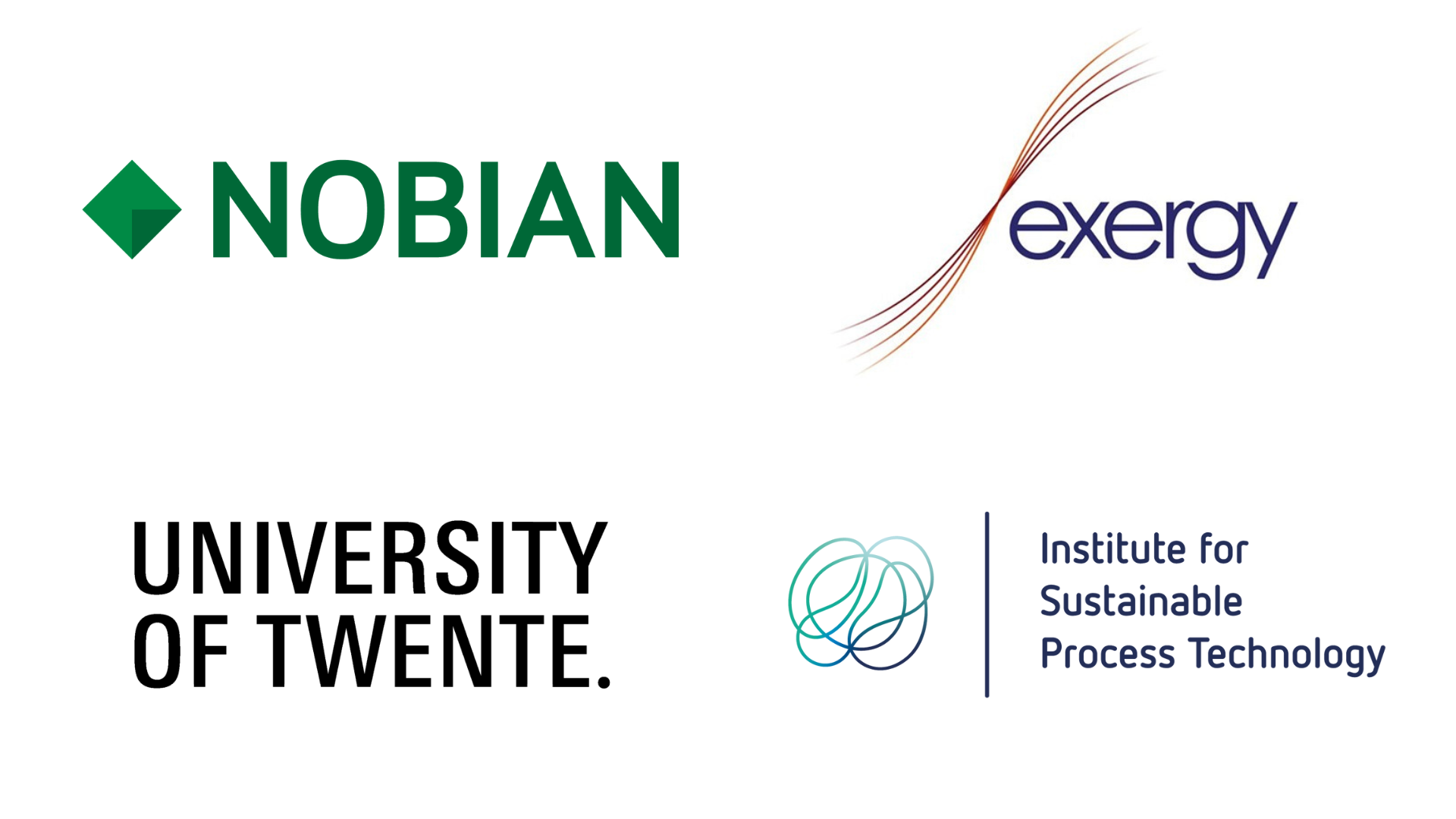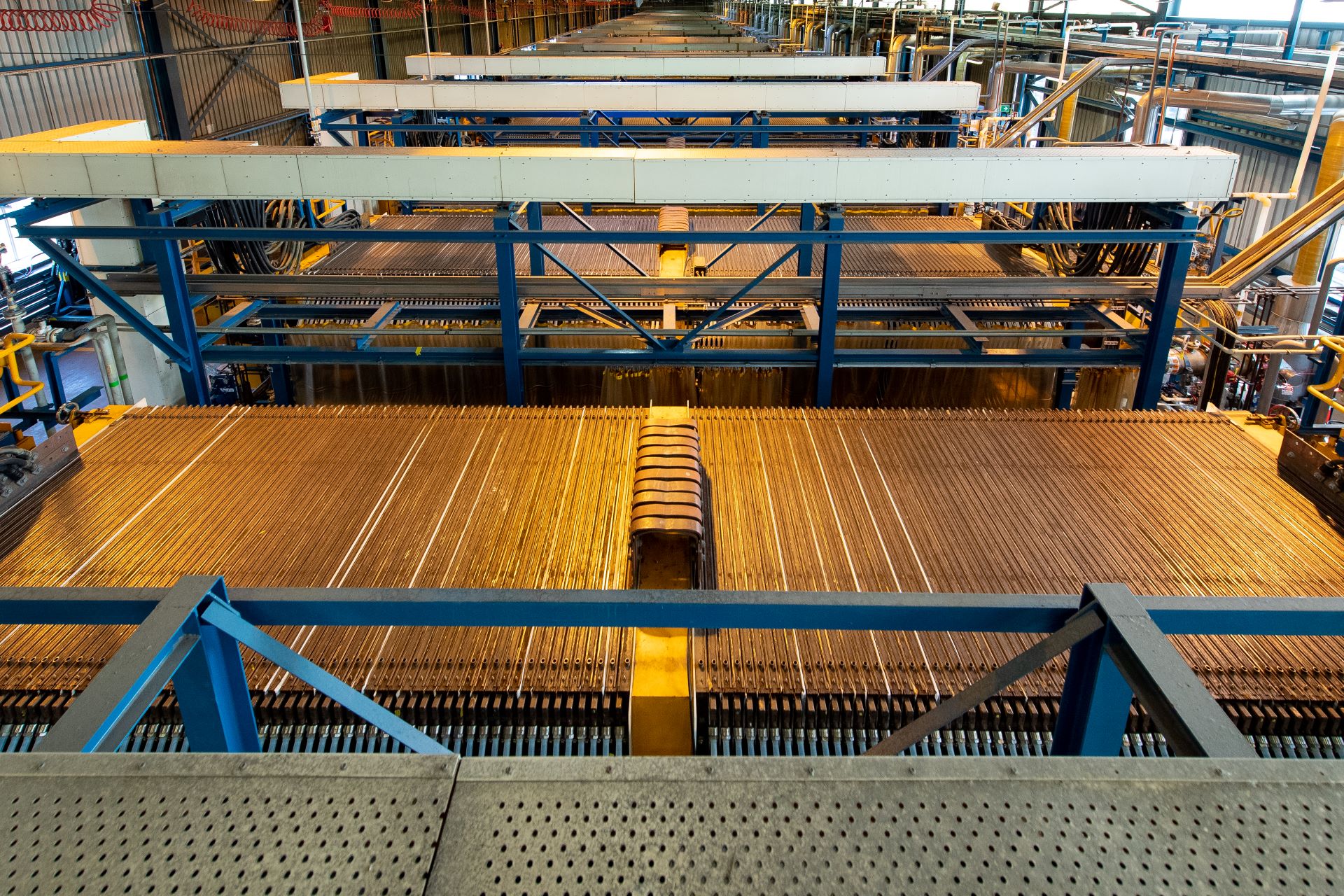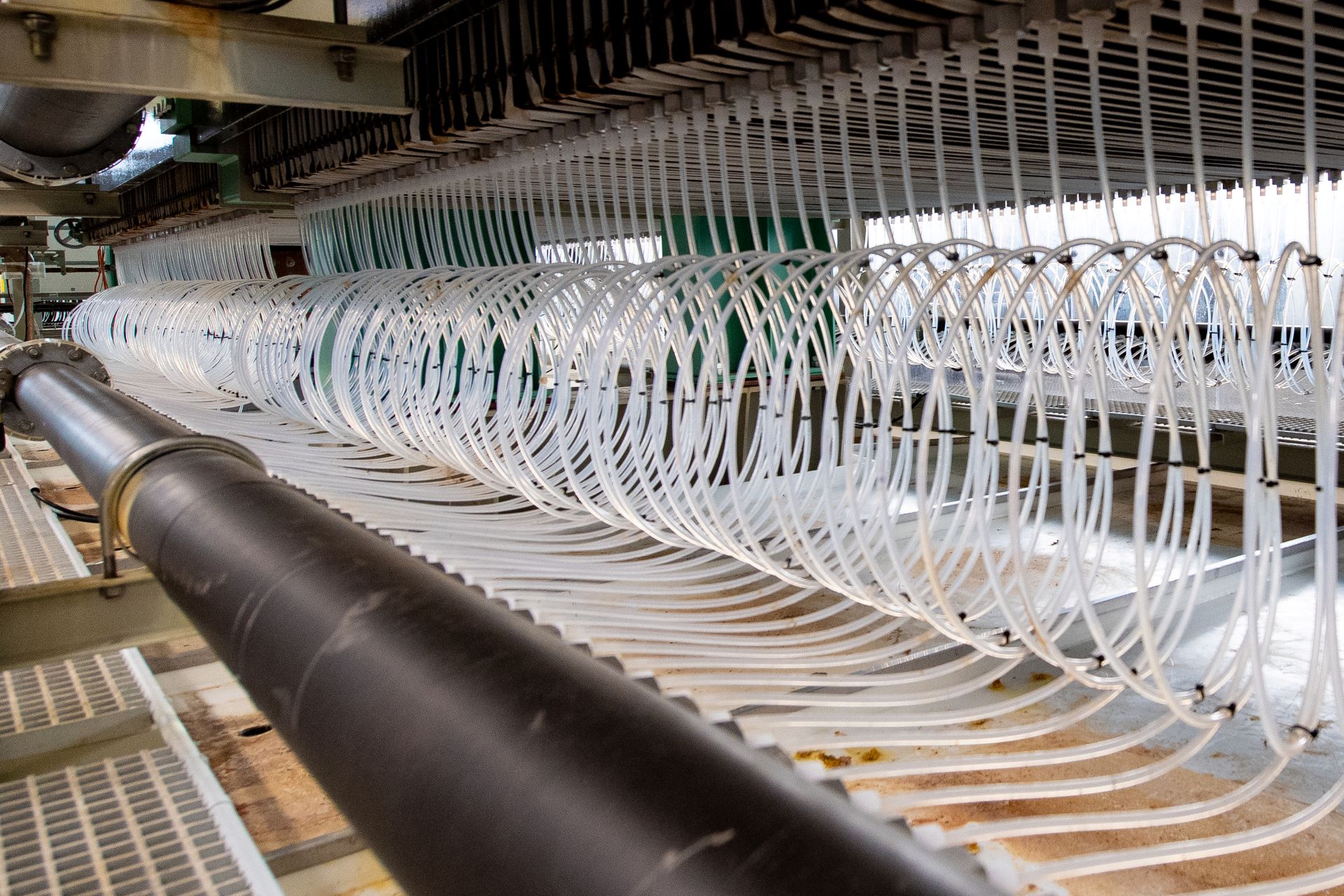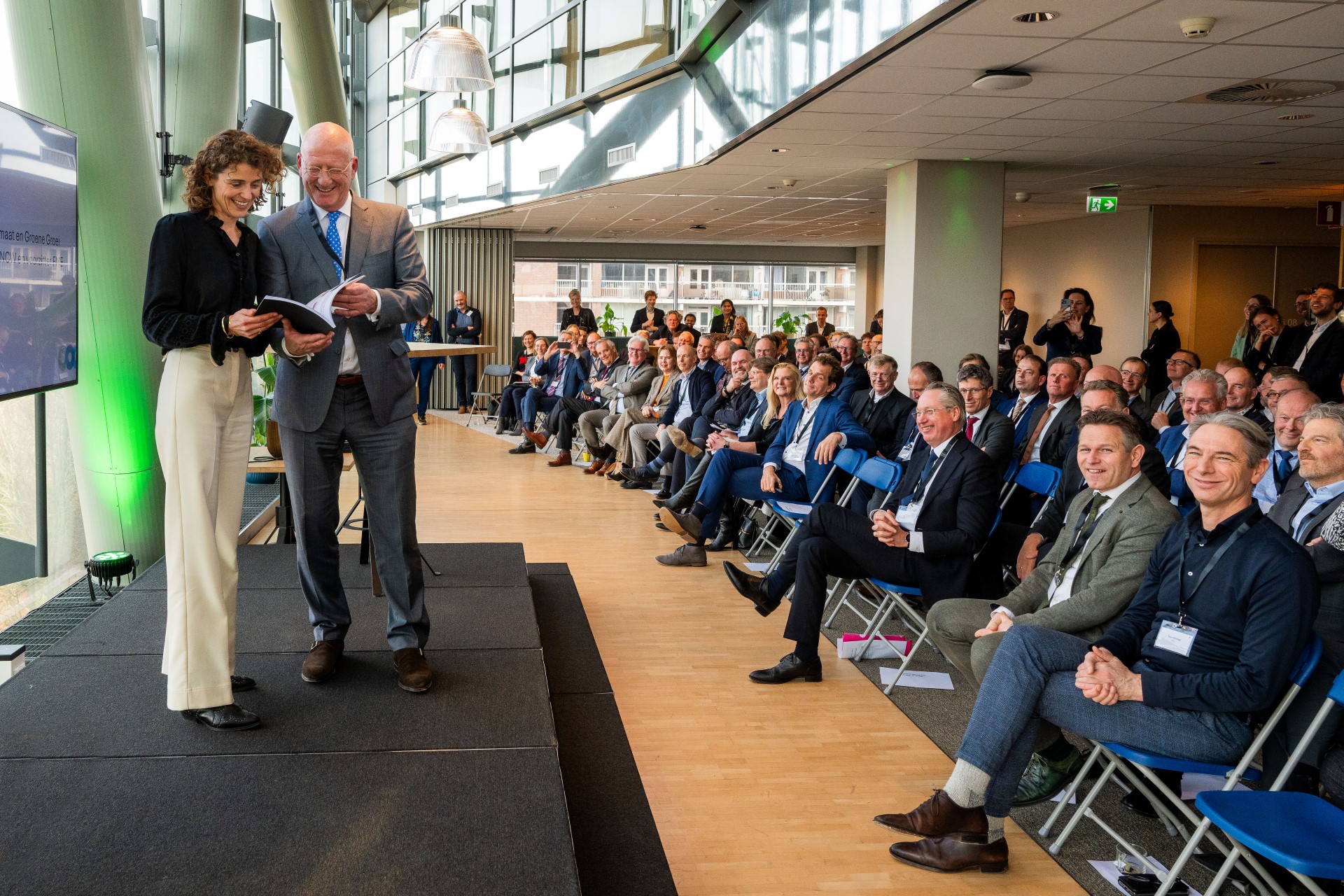Energy storage in batteries
Batteries play an important role in the energy transition. Lithium (LiFePO4) batteries are currently the most common. However, due to its limited availability and the high cost and energy consumption associated with lithium mining, its use on a large scale is limited. Recent research indicates that sodium battery cells (based on NaAlCl4, sodium tetrachloroaluminate, STCA) could be an alternative, offering comparable or even better performance.
Collaboration and innovation
The STARBATCH project is a joint effort between Nobian, Exergy Storage, the University of Twente and ISPT to develop a new production process for sodium-based batteries. The parties in the consortium will work together on the affordable, scalable, safe and energy-efficient production of sodium tetrachloroaluminate (NaAlCl4), a promising and more sustainable alternative to lithium-based batteries. STARBATCH stands for Sodium Tetra Chloro Aluminate Recyclable BATtery Chemicals.
Sodium as an alternative to lithium
Unlike lithium, sodium is abundantly available and easy to extract in the form of salt (NaCl). The partners in this project have demonstrated on a laboratory scale that the most important and active component of the new battery, NaAlCl4, can be produced more easily and sustainably compared to the current method. The new production process mixes sodium chloride, aluminum and chlorine in a reactor, allowing NaAlCl4 to be produced at lower temperatures.
Energy efficiency and strategic independence
In addition to replacing lithium with sodium, this innovative production process uses less energy than current methods. By using raw materials that are produced by electrical processes, such as chlorine, the carbon footprint is significantly reduced. The required raw materials, such as salt (sodium chloride, NaCI), are abundantly available, ensuring strategic independence for the Netherlands and Europe in the field of energy storage at lower costs. The project aims to create a new battery value chain in the Netherlands, from salt extraction to battery production.
Coert van Lare, Director of the Renewable and Circular Innovation Program at Nobian: 'Nobian plays a crucial role in the battery value chain by supplying the chemicals that are essential for their production. The STARBATCH project focuses on more sustainable salt-based batteries, which fits perfectly with our Grow Greener Together sustainability strategy and strengthens Nobian's position in the energy storage sector. By using Nobian's raw materials (salt and chlorine), we are also achieving green growth.’
Gert Jan Jongerden, CEO of battery tech developer Exergy Storage: 'We are glad that Nobian has adopted our initial idea, developed it further and is now scaling it up. This process will improve the current generation of cells and simplify manufacturing. Exergy will thoroughly test Nobian's chemicals in its battery cells. Nobian's vision 'Grow Greener Together' resonates well with us. Exergy Storage wants to make an important contribution to a new, growing battery industrial chain that is essential for a sustainable future. That is why Exergy, together with Nobian and other partners, is fully committed to this project.’
ISPT Director Tjeerd Jongsma: ‘Europe's future is electric. New types of batteries play a crucial role in this. An innovative production process using raw materials from the Netherlands, which are needed to generate the required chemicals, is therefore spot-on’.
Technology development and up-scaling
With the support of TKI Energy (Top Consortia for Knowledge and Innovation), the STARBATCH project can develop sustainable technologies. The focus is on improving the efficiency and scalability of the production process. Activities include the development and testing of a new reactor (by Nobian, supported by subcontractor Demcon-Suster and the University of Twente), the testing of NaAlCl4 in laboratory batteries (by Exergy Storage) and the drafting of a conceptual process design and economic analysis (by the University of Twente and Nobian). Preparations for scaling up to pilot production are in full swing. In addition, collaboration between Dutch and European partners is being strengthened to accelerate technology development. The scaling up of the process technology is expected to lead to commercial production before 2030.
